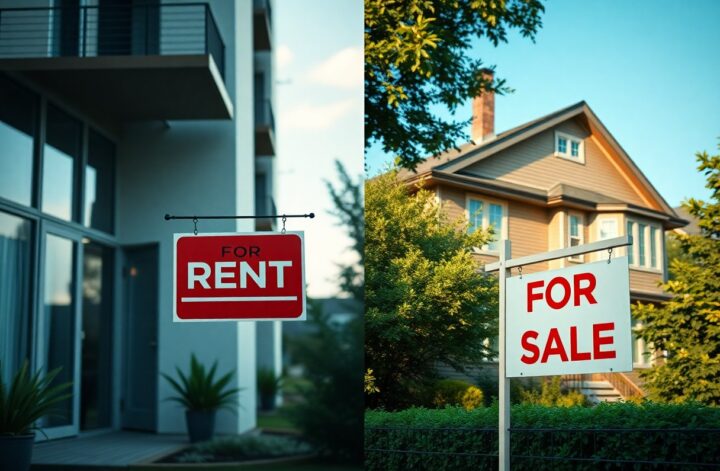There’s a big decision you need to make: should you rent or buy your home? This guide will help you weigh the pros and cons of each option to find what fits your financial situation best. With tools like Is It Better to Rent or Buy? A Financial Calculator, you can make a more informed choice. Let’s explore the factors that matter to you.
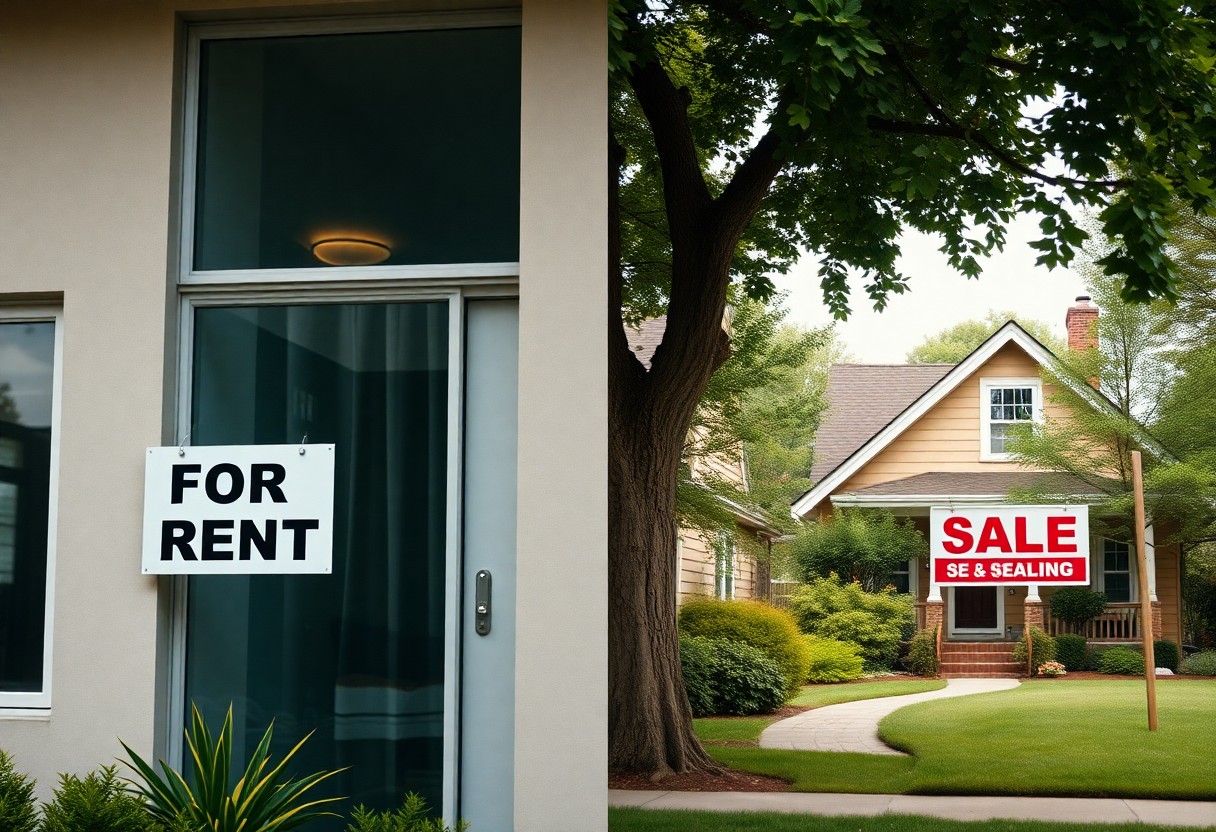
Key Takeaways:
- Evaluate your financial situation: Consider your income, savings, and expenses before deciding to rent or buy a home. Make sure you can afford the monthly payments, whether it’s rent or a mortgage.
- Think about your long-term goals: If you plan to stay in one place for several years, buying might be a good option. If you prefer flexibility, renting could be the better choice.
- Research the market: Look at property prices and rental rates in your desired area. This will help you understand which option is more financially sound for you.
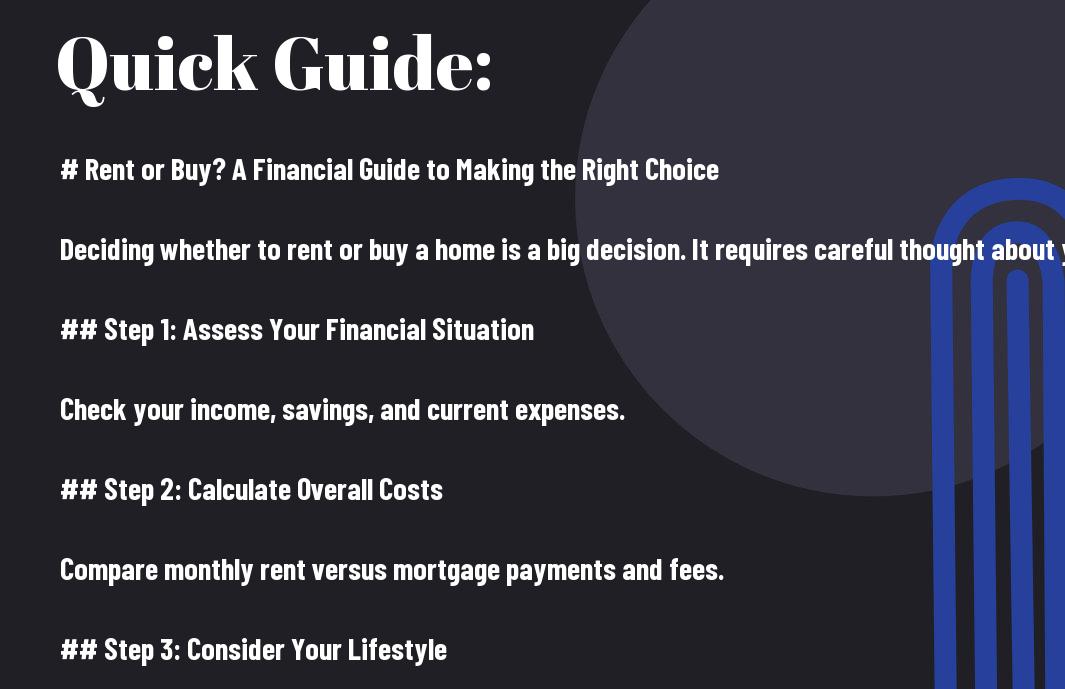
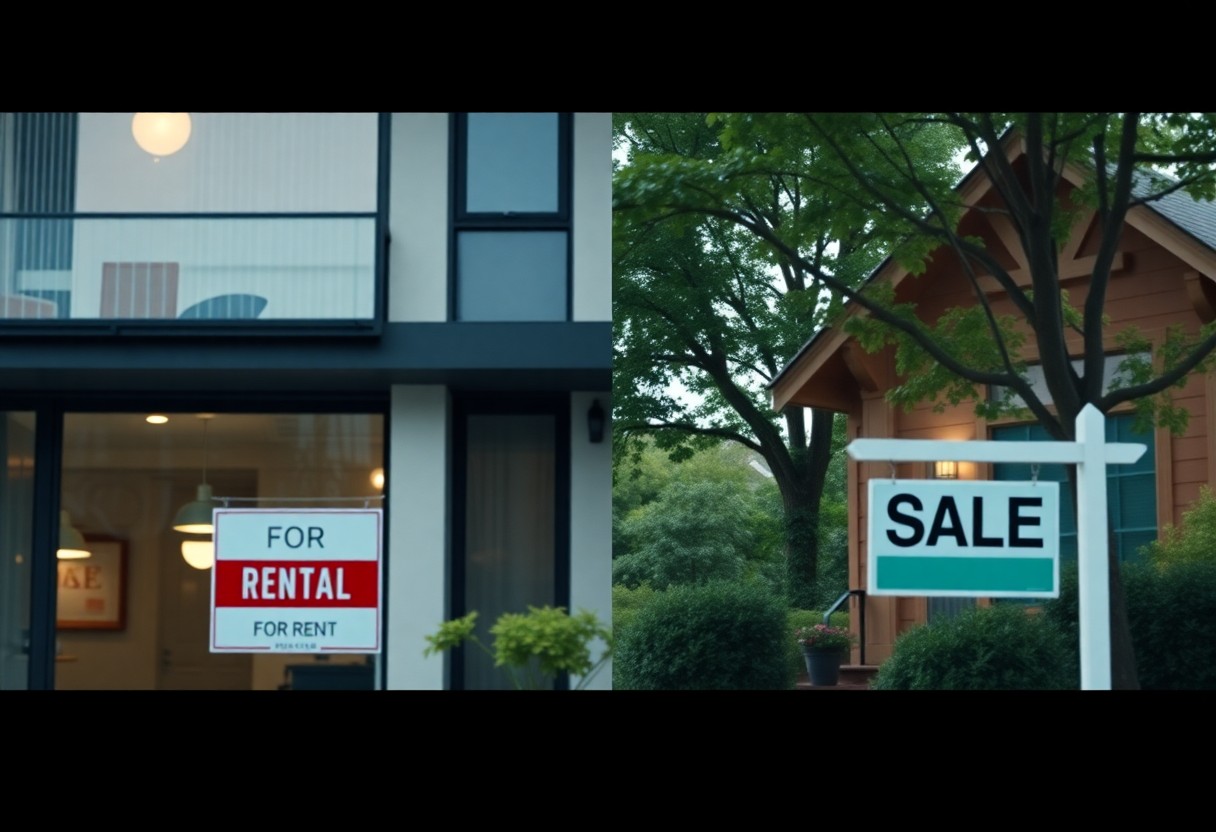
Understanding the Types of Housing
A variety of housing options exist for you to choose from. Each type has its own advantages and disadvantages. Here’s a breakdown to help you understand better:
| Type of Housing | Characteristics |
|---|---|
| Apartment | Often rented, shared building, low maintenance |
| Condo | Ownership of unit, shared common areas, maintenance fees |
| Townhouse | Connected units, more space than apartments, some maintenance |
| Single-Family Home | Full ownership, more privacy, requires maintenance |
| Mobile Home | Transportable, generally more affordable, can be rented or owned |
Thou should carefully consider your lifestyle and budget when choosing your ideal housing type.
Renting Explained
Clearly, renting a home means you pay a landlord for the right to live in a property. This option allows you to avoid large upfront costs. You can move easily at the end of your lease. However, you won’t build equity as you pay rent each month.
Buying Explained
Types of ownership vary from outright ownership to shared arrangements. When you buy a home, you gain an asset that can appreciate over time. This means your investment may grow in value. You’ll also have greater freedom to modify your living space and won’t have restrictions that come with renting.
The financial commitment of buying includes not only the mortgage payment but also property taxes and maintenance costs. You may also want to consider how long you plan to stay in one place. If it’s several years, buying might be worthwhile. Making this choice wisely can shape your financial future.
Key Factors to Consider
Some key factors can help you decide whether to rent or buy a home. Think about your financial situation, your lifestyle, and your future plans. Consider these points:
- Your current income and expenses
- The real estate market in your area
- Your job stability
- Future family plans
This information guides your choice.
Financial Readiness
Factors that show your financial readiness include your savings, credit score, and stable income. A healthy emergency fund is also important. If you can cover a down payment, monthly mortgage, and other costs, you may be ready to buy. Renters, however, should ensure they can cover monthly payments without stress.
Long-Term Goals
You should think about your long-term goals when deciding whether to rent or buy. If you plan to stay in one place for a long time, buying may be better. On the other hand, if you expect to move within a few years, renting could be more practical.
It’s also important to evaluate your personal goals. Owning a home often builds equity, which can be valuable in the future. If you aim to create a stable environment for your family, buying might suit you. Evaluate your lifestyle and future plans to ensure you make the best choice for your financial situation.
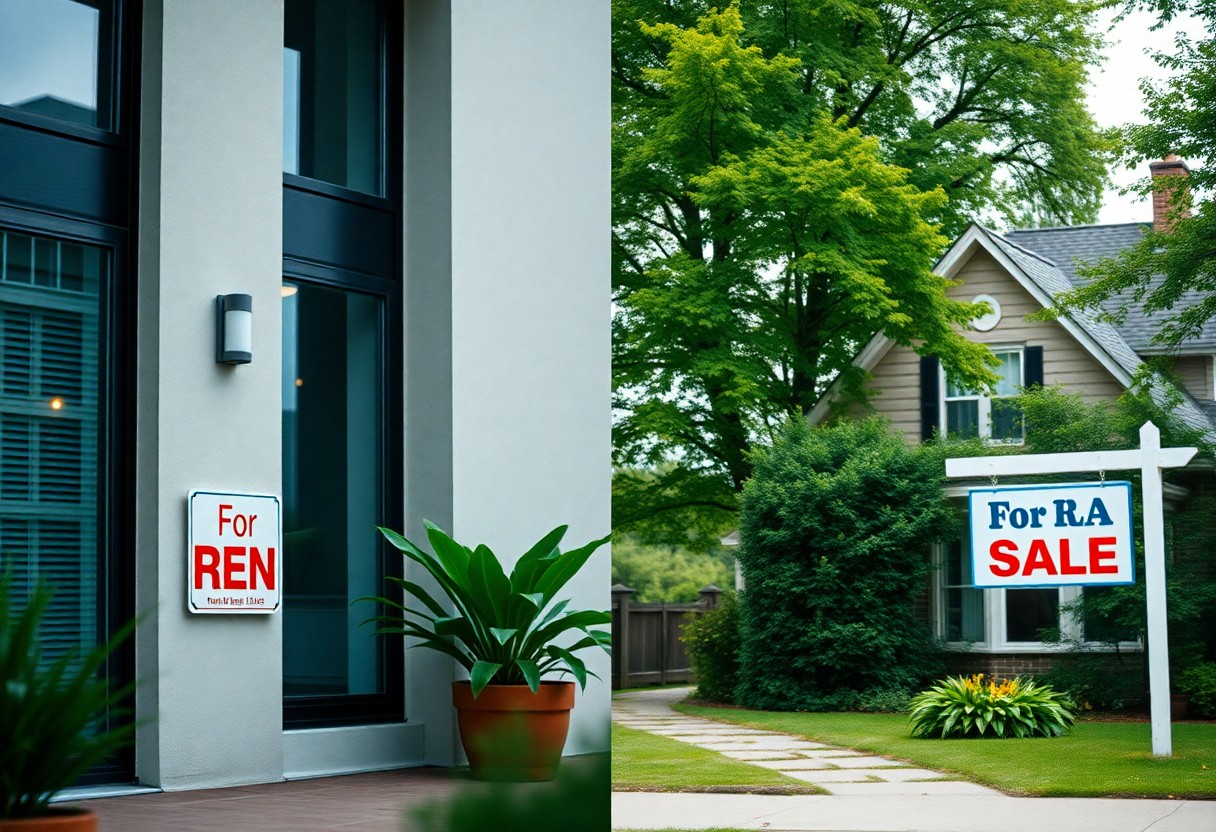
For the Pros and Cons of Renting
When deciding whether to rent or buy a home, it’s important to consider the pros and cons of each option. Below are some benefits and drawbacks of renting, so you can make an informed decision. For more on renting and buying, check out Renting vs. Buying: 5 Factors in Making the Right Housing Decision for You.
| Pros of Renting | Cons of Renting |
|---|---|
| Flexibility in moving | No equity build-up |
| Lower upfront costs | Limited control over changes |
| No property taxes | Risk of rent increases |
| Maintenance often handled by landlord | Potential restrictions on pets |
| Easier to budget for costs | Less stability than owning |
| Short-term commitments | May not feel like home |
Advantages of Renting
There’s a lot to gain from renting. You enjoy the freedom to move when your lease ends, giving you more flexibility. Renting also requires lower upfront costs compared to buying a house. Plus, you typically don’t have to worry about property taxes or major maintenance issues. These factors make renting appealing, especially for young adults or anyone unsure about settling down.
Disadvantages of Renting
Now, let’s look at the downsides. Renting means you do not build equity in a home. You also have limited control over changes you can make to the property. Additionally, landlords can raise the rent over time, which might affect your budget.
With renting, you may also face restrictions, such as rules against keeping pets. These limitations can make it harder to fully enjoy the space as your own. All in all, while renting has its advantages, you need to think about how these disadvantages might impact your long-term happiness and financial goals.
Pros and Cons of Buying
Now, when considering whether to buy a home, it’s important to weigh the pros and cons carefully. Below is a breakdown of the advantages and disadvantages to help you make an informed choice.
Pros and Cons of Buying
| Pros | Cons |
|---|---|
| Builds equity over time | Requires a large upfront payment |
| Stability in living costs | Maintenance costs are your responsibility |
| Ability to customize your home | Less flexibility to move |
| Potential for property value appreciation | Market fluctuations can affect value |
| Tax benefits available | Long-term financial commitment |
| Sense of community | More responsibility overall |
| No landlord restrictions | Time-consuming buying process |
| Potential rental income | Additional costs like HOA fees |
| Freedom to create a long-term home | Impact on credit score if payments are missed |
Advantages of Buying
Clearly, buying a home offers several advantages. You can build equity as you make mortgage payments, which can increase your wealth over time. Homeownership also provides stability with fixed mortgage payments, unlike rent, which may change annually. You have the freedom to personalize your space without landlord restrictions and can enjoy tax benefits available to homeowners. All these factors contribute to a sense of belonging and investment in your community.
Disadvantages of Buying
Disadvantages can impact your financial future significantly. A home requires a substantial upfront payment, and the costs don’t stop there. You are responsible for maintenance and repairs, which can add up quickly. Also, if you buy a home, you may face constraints when trying to move for a new job or personal reasons.
A recent study found that about 36% of first-time homebuyers regret their purchase. Many feel overwhelmed by the long-term financial commitment or the unexpected costs of homeownership. Because repairs and market fluctuations can be unpredictable, it’s vital to evaluate your situation and finances carefully before deciding to buy. You should ensure that buying aligns with your personal and financial goals.
Step-by-Step Guide to Making the Decision
To choose between renting or buying a home, you need to consider several key factors. Start by assessing your personal situation, then move on to evaluate market conditions. Use the following table to guide your thought process:
| Factors to Consider | Questions to Ask Yourself |
|---|---|
| Financial Situation | Can you afford the down payment and monthly mortgage? |
| Job Stability | Do you plan to stay in the area long-term? |
| Local Market | Are home prices rising or falling? |
| Maintenance Responsibility | Are you ready to handle repairs on your own? |
Assessing Your Situation
Now, it’s important to look at your current financial health. Consider your income, savings, and debts. Ask yourself if you can afford the upfront costs like the down payment and closing fees. If your job is stable and you plan to stay put for a while, buying may be the better choice. However, if you’re unsure about your future plans, renting might be more suitable.
Evaluating Market Conditions
While you think about your situation, also evaluate the housing market in your area. Analyze whether home prices are rising or falling. This information can greatly impact your decision to rent or buy. If the market is experiencing low prices, it may be an ideal time to purchase a home.
Another factor to weigh is the housing supply. If there are many homes available, prices may be lower, which works in favor of buyers. Conversely, if there’s a shortage, prices might rise. Research local trends to make a more informed choice.
Tips for Making the Right Choice
Despite the challenges of deciding whether to rent or buy a home, you can make an informed choice. Consider these helpful tips:
- Assess your financial situation.
- Think about your lifestyle and future plans.
- Research the local housing market.
- Evaluate the costs associated with both renting and buying.
- Don’t rush; take your time to weigh the options.
Recognizing what fits best for your situation will lead to a wise decision.
Budgeting Wisely
While you explore your options, creating a solid budget is vital. Look at your monthly income and expenses. Include rent or mortgage payments, utilities, and maintenance costs. Make sure you can cover these without feeling stretched. By understanding your finances, you will find what you can comfortably afford.
Seeking Professional Advice
Wisely consulting experts can provide valuable insights. Turning to real estate agents or financial advisors will help you navigate the complexities of buying or renting. They’ll explain market trends and provide personalized advice based on your unique situation.
A knowledgeable professional can offer data on housing prices, interest rates, and even potential investment returns. This information is beneficial for making your decision. Ultimately, their expertise can help you feel more confident, ensuring that you take the right steps toward a stable financial future.
Conclusion
Considering all points, deciding whether to rent or buy a home depends on your financial situation, lifestyle, and long-term goals. Take the time to evaluate your budget, the real estate market, and how long you plan to stay in one place. Renting offers flexibility, while buying can build equity over time. Whatever choice you make, ensure it aligns with your current needs and future plans to support a stable financial path.
FAQ: Rent or Buy? A Financial Guide to Making the Right Choice
Q1: What are the main benefits of renting a home?
A: Renting a home has several advantages. First, it usually requires less upfront money compared to buying. You typically only need to pay a security deposit and the first month’s rent. Second, renting offers flexibility. If you need to move for a job or personal reasons, it’s generally easier to end a lease than to sell a house. Finally, renters are not responsible for major repairs or upkeep, which can save time and money.
Q2: What are the benefits of buying a home?
A: Buying a home comes with its own set of benefits. One of the main advantages is building equity. Each mortgage payment increases your ownership in the house. Over time, this can be an excellent investment. Homeowners also have stability. You won’t have to worry about rent increases or a landlord deciding to sell the property. Plus, owning a home allows you to customize and renovate it as you wish.
Q3: How can I determine if renting or buying is right for me?
A: To decide between renting and buying, consider your financial situation, lifestyle, and future plans. Ask yourself these questions: Can you afford the down payment and monthly mortgage payments? Do you plan to stay in the same area for a while? Can you handle the responsibilities that come with homeownership? It can also be helpful to create a budget and compare the costs of renting versus buying in your area.
Q4: What are the hidden costs of buying a home?
A: Buying a home involves more than just the purchase price. Some hidden costs include:
- Property taxes: These can vary by location and will add to your monthly expenses.
- Home insurance: You’ll need insurance to protect your investment.
- Maintenance costs: Regular upkeep and sudden repairs can be significant.
- Closing costs: These are fees associated with finalizing the sale, such as appraisal fees and attorney fees.
Being aware of these costs can help you budget more effectively.
Q5: Is it possible to start as a renter and buy a home later?
A: Yes, many people start as renters before buying a home. In fact, renting can be a smart way to save for a down payment. It also allows you to explore different neighborhoods to find out where you want to settle down. As you build your savings and gain a better understanding of the housing market, you can transition to homeownership when you’re ready.
Key Takeaways
Choosing whether to rent or buy a home is a big decision. Here are some key points to consider:
- Renting offers flexibility and lower startup costs.
- Buying builds equity and offers stability.
- Evaluate your finances and future goals before making a choice.
- Be aware of all costs associated with homeownership.
- It’s perfectly okay to start as a renter and buy later.
By weighing your options carefully, you can make the best choice for your situation.

